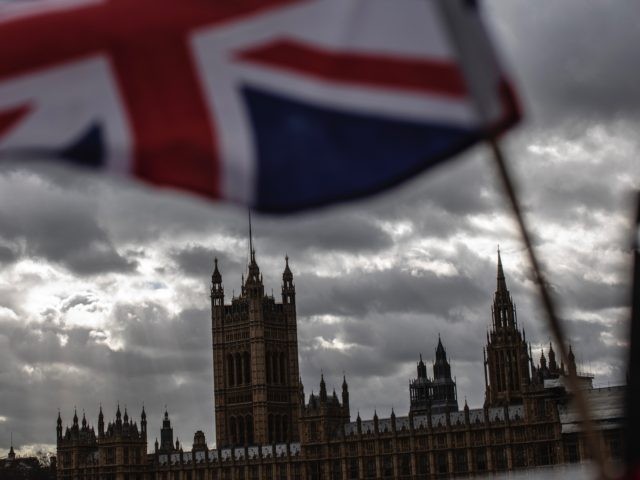The United Kingdom’s culture secretary has threatened to impose fines on social media companies if they fail to police so-called hate speech. The move comes in stark contrast to Poland, which has vowed to fine tech companies which embark on censorship campaigns.
British Culture and Media Secretary Oliver Dowden said that if Silicon Valley companies fail to inflict stricter limitations on “racist abuse”, then the UK will seek to regulate the companies under the country’s broadcasting regulator Ofcom.
Should social media platforms be regulated under Ofcom, they could potentially face billions of pounds sterling in fines of up to ten per cent of their global turnover.
Mr Dowden said per the Daily Mail that he hopes the threat will “cause their owners to sit up and take notice – we’re talking about billions of pounds”.
“They need to up their game and they shouldn’t allow racist abuse to fester on the platforms, and if they fail to do so they’ll face consequences,” he added.
The Conservative MP warned that Ofcom could even be empowered to enact criminal penalties against executives if their platforms are deemed to not be cracking down on speech hard enough.
“I don’t want to use that power. If we feel that the other range of measures we’re taking aren’t effective enough, we reserve the right to have criminal sanctions,” Dowden said.
While the tradition of free speech in Britain stretches back centuries — with England’s Bill of Rights 1689 enshrining a constitutional right of freedom of speech — without a written constitution, or indeed, First Amendment style protections on speech, the country has increasingly sought to place limits on expression.
The campaign against so-called hate speech in Britain has seen police record thousands of ‘non-crime hate incidents‘ in criminal databases, meaning that such offences will be visible on background checks, despite the alleged perpetrator not having committed an actual crime.
UK Police Tell Public: Report 'Hateful' Behaviour 'Even If It Isn't a Crime', 'You Don't Even Need Evidence' https://t.co/qzTTp3vFot
— Breitbart London (@BreitbartLondon) October 21, 2019
In contrast to the United Kingdom, Poland has vowed to force companies to guarantee freedom of speech, rather than use state power to curb it. Among the plans on the table, Poland could implement fines on tech companies which censor or shadowban Polish users.
Last week, Polish Deputy Minister for Justice Sebastian Kaleta told Breitbart News Network editor in chief Alex Marlow: “We saw many big tech firms starting to ban and delete content which presented the point of view of Christian society, of traditional society… deleted on the basis of ‘hate speech’. However, this content did not infringe any Polish law, for example, nobody in these particular cases propose violence.”
Kaleta, who is spearheading the online freedom of speech bill, told Breitbart London on Tuesday that he believes “neo-Marxists” have taken control of social media platforms and the mainstream media in the West, employing “methods which are closer to those of Soviet Russia than social democracy”.
Should Poland’s Freedom Act be enacted into law, the country could impose fines of up to 50 million zloty ($14 million) on Silicon Valley companies which fail to reinstate censored Poles.
The Hungarian government under the leadership of Prime Minister Viktor Orbán’s government has also promised to implement actions against tech companies shadowbanning “Christian, conservative, [and] right-wing” voices on the internet.
“The pressure from the far left has developed from soft political correctness into a much harsher phase, that of cancel culture… [it is] very worrying, and is more reminiscent of bolshevik standards than democratic ones.” https://t.co/Yg2ako2cWy
— Breitbart London (@BreitbartLondon) February 2, 2021
While the conservative governments in the two former Eastern Bloc nations have vowed to stand up against censorship, the nominally Conservative government of Prime Minister Boris Johnson in the UK is seeking to increase state control of speech on the internet.
The government’s long-planned Online Harms law would require Big Tech to police obviously illegal content like terrorism and child exploitation, but would also extend reach to innocuous posts such as “trolling” and the spread of alleged “disinformation”.
More recently the British government has pressuring social media companies to clamp down on the spread of alleged fake news about the coronavirus vaccines.
A government spokesman said in November: “We take this issue extremely seriously and have secured a major commitment from Facebook, Twitter and Google to tackle it by not profiting from such material, and by responding to flagged content more swiftly.”
Report: Anti-Trump Former UK Deputy Prime Minister 'Involved' in Facebook Censorship of Biden Emails https://t.co/KZsFUciKvB
— Breitbart London (@BreitbartLondon) October 17, 2020
Follow Kurt Zindulka on Twitter here @KurtZindulka

COMMENTS
Please let us know if you're having issues with commenting.